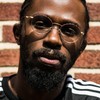On the summery evening of September 2, 2010, a man named Charles Faulkner was standing on the corner of North Avenue and Wolfe Street in East Baltimore when he noticed a figure, Detective Hersl, approaching him. According to court documents, Faulkner, who would eventually receive probation for possessing narcotics, ran and hid on a nearby porch in an attempt to avoid arrest. Hersl allegedly caught up to him, though, and began beating him in the face with his walkie talkie and fists. After the assault, he cuffed Faulkner and threw him in the back of an unmarked police car. When Faulkner regained consciousness, he was at Mercy Medical Center, where it was determined he had suffered a "busted lip and a broken jaw." He sued Hersl and the BPD, settling for $49,000 in 2014.To people who grew up or lived on the East Side of Baltimore, there's a chance this story sounds familiar. Hersl, 47, has been with the BPD since 1999, and he has cultivated a reputation on the streets as a physically abusive, crooked cop. Tall and solidly built, like a former football player, he has the endurance to match his younger plainclothes officer colleagues, or "knockers" as they're called in Baltimore. In 2013, Hersl's brother Matthew was killed after being run over by a man fleeing the police. According to Hersl's brother Jerome, the incident gave the officer a new tenacity as he pledged to make "a better effort to clean the city up of drugs."When Faulkner regained consciousness, he was at Mercy Medical Center, where it was determined he had suffered a "busted lip and a broken jaw." He sued Hersl and the BPD, settling for $49,000 in 2014.
A sea of white from people's polo shirts, sundresses, and tees flooded the streets of downtown Baltimore the night of August 16, 2014. It seemed as if every young person from the East and West Sides made the trek down to the Baltimore Arena to see Lil Boosie (now Boosie Badazz), the Baton Rouge, Louisiana, rapper who is particularly beloved in the city. Emotions were running high. Breakout local artist Lor Scoota performed his hit "Bird Flu"; Master P made an unexpected but appreciated appearance; Boosie performed some of the best music from his catalog—songs like "Distant Lover," "Smoking On Purple," and Foxx's "Wipe Me Down." It was exactly a week after teenager Mike Brown had been shot and killed by Ferguson, Missouri, police officer Darren Wilson. Ferguson had erupted in protests and unrest. Boosie—one of the closest things street rap has to an activist due to his career-long fight against corrupt police in his home state of Louisiana and nationwide—stopped the show, looked out into the crowd and acknowledged the tragedy of Brown's death. The audience was near silent when he yelled "I know y'all been watching the news, right?!" He immediately followed by performing his and Webbie's 2009 track "Fuck The Police," boosting the venue's energy to its highest point."Hersl is used to doing that to people where it's no response. Once it happens, I'm supposed to just go about my business and don't say nothing about it. But Moose was young at the time and arrogant. He came home and responded."
"That nigga white so I'm guessing he ain't liking my skin / They had me sitting for a house raid I wasn't even in / Detective Hersl he a bitch. I swear to God he ain't right / Heard about my rap career, he trying to fuck up my life"
